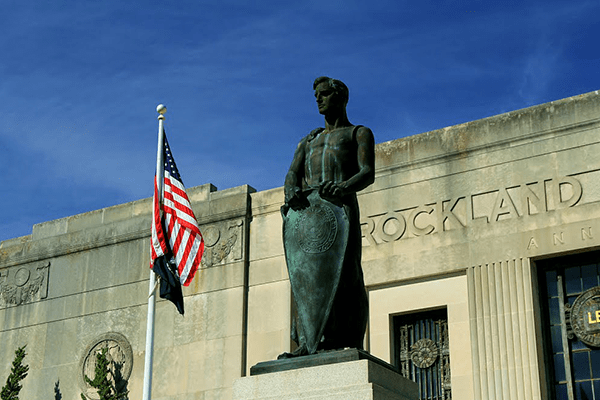|
RCBJ-Audible (Listen For Free)
|
Chamber Says It Is Not Responsible For Former President Brian Campbell Alleged Actions In Defamation Suit
By Tina Traster
The Pearl River Chamber of Commerce has been roped into a defamation lawsuit that pits a former treasurer against four former directors.
Former Chamber President Brian Campbell, who along with three other officers accused of defaming former treasurer Michelle Worob, says it was the Chamber’s responsibility to indemnify him while he served as president against allegations brought in the lawsuit.
But the Pearl River Chamber of Commerce fired back in a court filing on July 11, 2021 saying Campbell’s conduct was outside the scope of indemnification, that the “reckless and intentional acts” he was alleged to commit are not covered under either the Chamber’s bylaws or insurance policies.
Former Pearl River Chamber treasurer Michelle Worob on February 10th filed a lawsuit in the Supreme Court of Rockland County against four former directors, claiming their negative public characterizations of her work as treasurer amounted to defamation. In her defamation suit, Worob, owner of Luigi O’Grady’s Deli in Pearl River, alleges former directors Brian Campbell, Matthew Worgul, Lisa Williams, and Jenna Fabio made statements suggesting Worob, who was treasurer from 2011 to 2019, “misappropriated monies for her own benefit and gain.”
Worob, who is seeking $1 million in damages, disputes any allegations of wrongdoing in her role as treasurer and touts her accomplishments over many years with the Chamber in the suit.
After the former directors left, the new directors hired both a forensic accountant and an attorney to get to the bottom of the allegations. Perzigian said the board hired South Nyack Attorney Donald J. Feerick Jr. and forensic accountant James DeMinno CPA of New City to “get the facts.” Perzigian said the Chamber is still awaiting the results.
Since February, there has been a flurry of filings from the other defendants, including Lisa Williams, who has made a motion to dismiss the complaint against her, and from Matthew Worgul, who denied culpability. There is no response yet from the fourth defendant, Jenna Fabio.
On June 10th, Judge Rolf Thorsen, acting Supreme Court Justice, recused himself from the case citing “the need to avoid the appearance of impropriety, impartiality or bias.” A new judge has not yet been assigned to the case.
The heart of Worob’s legal complaint takes aim at what she says are comments that have harmed her public reputation. Worob claims the defendants’ actions “attacked her character, honesty, competence and [affected] her business relationships and wellbeing, causing economic harm and inflicting emotional distress and mental anguish.”
The suit specifically alleges that on April 26, 2020, Worob was told by then board member and now Chamber president Susan Perzigian that former president Brian Campbell was making remarks at chamber meetings that Worob’s “handling of the chamber’s funds was suspicious.” According to the suit, Carmel Reilly, Orangetown’s economic development director and Chamber member, said she overheard someone say, “the previous Chamber treasurer wrote a lot of checks to cash that can’t be explained,” and that “Worob can’t be trusted.” Worob attributes these comments to Brian Campbell.
On April 23, defendant Campbell filed a “third-party complaint,” bringing the Pearl River Chamber into the lawsuit as a third-party defendant. Campbell’s claim is an attempt to shift any obligation for damages to the Chamber in the event he loses the lawsuit. His claims are based on the notion that the organization was obligated to indemnify and insure him for acts taken while he was in office. Campbell was president from March 2018 through November 2020, when he resigned.
Campbell’s suit says that officers are entitled to two types of protection: indemnification under the bylaws for “claims, damages, losses and expenses arising out of, or resulting from the performance” of his duties as president. The suit also alleges the Chamber was required to secure insurance to protect officers for any claims of damaged not covered by the indemnification provision of the bylaws.
In response, the Chamber asserts his acts, if proven to be true, were “a form of gross negligence,” that were beyond the pale of an officer’s behavior. The Chamber’s response essentially boils down to the notion that it is not obligated to cover an officer for “intentional torts” such as defamation and negligent infliction of emotional distress.
Additionally, the Chamber also says that if, indeed, there was inadequate insurance, it was Campbell’s fault because he was president at the time. The filing also cites that Campbell’s successors have since obtained insurance.











